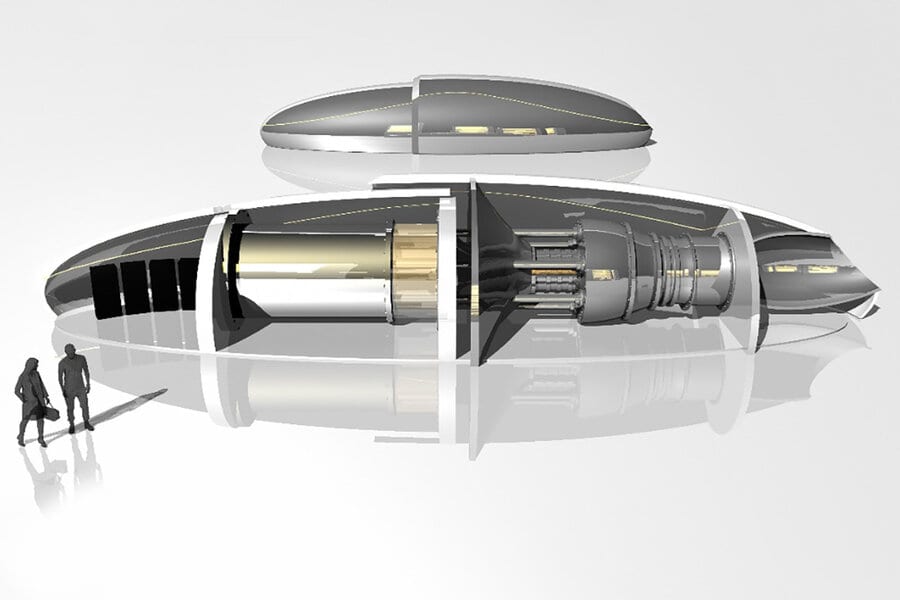
Thorium reactors: Asgard’s fire
WELL begun; half done. That proverb—or, rather, its obverse—encapsulates the problems which have dogged civil nuclear power since its inception. Atomic energy is seen by many, and with reason, as the misbegotten stepchild of the world’s atom-bomb programmes: ill begun and badly done. But a clean slate is a wonderful thing. And that might soon be provided by two of the world’s rising industrial powers, India and China, whose demand for energy is leading them to look at the idea of building reactors that run on thorium.
Existing reactors use uranium or plutonium—the stuff of bombs. Uranium reactors need the same fuel-enrichment technology that bomb-makers employ, and can thus give cover for clandestine weapons programmes. Plutonium is made from unenriched uranium in reactors whose purpose can easily be switched to bomb-making. Thorium, though, is hard to turn into a bomb; not impossible, but sufficiently uninviting a prospect that America axed thorium research in the 1970s. It is also three or four times as abundant as uranium. In a world where nuclear energy was a primary goal of research, rather than a military spin-off, it would certainly look worthy of investigation. And it is, indeed, being investigated.
India has abundant thorium reserves, and the country’s nuclear-power programme, which is intended, eventually, to supply a quarter of the country’s electricity (up from 3% at the moment), plans to use these for fuel. This will take time. The Indira Gandhi Centre for Atomic Research already runs a small research reactor in Kalpakkam, Tamil Nadu, and the Bhabha Atomic Research Centre in Mumbai plans to follow this up with a thorium-powered heavy-water reactor that will, it hopes, be ready early next decade.
China’s thorium programme looks bigger. The Chinese Academy of Sciences claims the country now has “the world’s largest national effort on thorium”, employing a team of 430 scientists and engineers, a number planned to rise to 750 by 2015. This team, moreover, is headed by Jiang Mianheng, an engineering graduate of Drexel University in the United States who is the son of China’s former leader, Jiang Zemin (himself an engineer). Some may question whether Mr Jiang got his job strictly on merit. His appointment, though, does suggest the project has political clout. The team plan to fire up a prototype thorium reactor in 2015. Like India’s, this will use solid fuel. But by 2017 the Shanghai Institute of Applied Physics expects to have one that uses a trickier but better fuel, molten thorium fluoride.
Thorium itself is not fissile.
The Latest on: Thorium reactor
[google_news title=”” keyword=”Thorium reactor” num_posts=”10″ blurb_length=”0″ show_thumb=”left”]
via Google News
The Latest on: Thorium reactor
- In a first, scientists precisely control thorium nuclei with laserson April 29, 2024 at 9:18 am
For the first time, researchers employ a laser to raise an atomic nucleus's energy state, then precisely track its return to baseline.
- Nuclear Power’s Lethal, Larcenous End Gameon April 25, 2024 at 10:55 pm
For the first time since 1954, no large new atomic reactors are under construction or on order in the United States. On March 1, 2024, Vogtle Unit ...
- Russia To Start Construction Of World's Largest Fast Reactor In 2026, Connect It To Grid In 2032on April 20, 2024 at 9:20 pm
Russia's state atomic energy corporation Rosatom is planning to set up a series of 1,200 MW (BN-1200) fast breeding reactors ...
- Editorial: Enough with Postal Service doublespeakon April 20, 2024 at 3:37 pm
No postal system that sends even cross-town mail hundreds of miles for sorting and then back can claim efficiency, The Telegraph's Saturday editorial argues.
- Our view | Keep document recording money in Longviewon April 20, 2024 at 4:30 am
With the decision on Longview's homelessness task force potentially just days away, we want to urge the council to consider the full ramifications of disbanding the task force and reverting ...
- From the Editor: In journalism, mistakes happen, and they are terribleon April 20, 2024 at 3:00 am
Clarification: or sometimes Editor’s note: These generally are reserved for errors of omission. That is, we forgot to include information that would have helped the story, or upon reading the story ...
- Community Voices: New crisis center a boon for behavioral health careon April 17, 2024 at 3:00 pm
November 2024 there will be a 24/7/365 Emergency Behavioral Health Walk-in Center with mobile crisis teams opening in Harrisburg. The center is an effort between Cumberland, Perry and Dauphin counties ...
- WHAT OTHERS ARE SAYING: Here's justice in action, nonethelesson April 17, 2024 at 11:52 am
There is some element of national pride in this unprecedented confirmation of the long-held American principle that no one — not even an ex-president — is above the law.
- ‘It’s an efficient machine to destroy nuclear waste’: nuclear future powered by thorium beckonson April 17, 2024 at 1:30 am
Thorium nuclear reactors could consume nuclear waste and provide power without the risk of nuclear weapon proliferation ...
- India's beaches can unlock a nuclear-powered futureon April 15, 2024 at 12:24 am
Kerala is famous for its languid beauty, laidback lifestyle, and stunning beaches. But it’s what lies beneath that has the country’s nuclear industry excited. Kerala is home to a massive amount of ...
via Bing News










